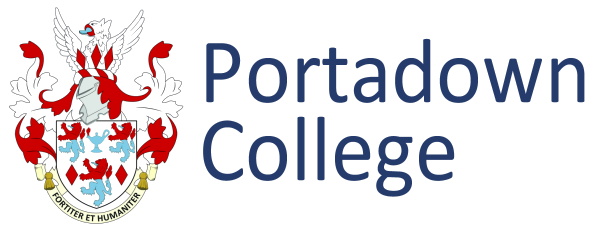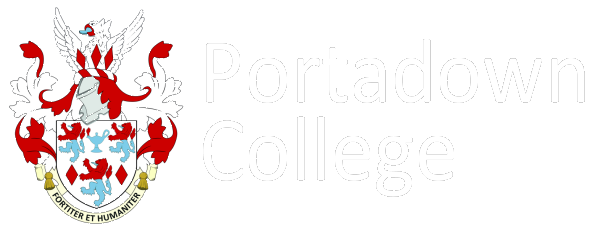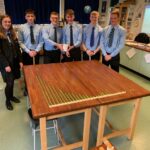Mrs Wilson (Head of Department)
Dr McCavigan
Mr Hunter (GCSE)
Mr McCourt (GCSE)
Physics
In our department we aim to help all students to develop the skills of Physics: the logical approach, the ability to build and test models and the numerical and problem solving skills. These are high-level skills which are inherent in a Physics student.
Physics basically can mean Rocket Science, but there’s a lot else besides that. We explore questions like how did the universe start? What is a black hole? Is time travel possible? Can our Energy Supplies last forever? How does an MRI machine work? If you have an enquiring mind, always asking why things happen, then Physics will help you find the answers. It forms the basis of most modern technologies and holds the future to global well-being.
There’s always plenty going on in the Physics Department. Practical Physics is our priority and there’s rarely a week goes by when students aren’t involved in experimental Physics tasks or analysing data to better understand our subject. We try to get involved with things outside of the run-of-the-mill academic activities. Our AS and A2 students participate in the British Physics Olympiad Competition, we organise the Physics Department Big Domino Rally just before Christmas and we try to raise a bit of money for charity with our revision sessions around Easter.
GCSE Physics
Examination Board: CCEA
What is GCSE Physics about?
From the smallest parts of the human body to the great clusters of galaxies, Physics helps us understand how our world works. A typical Physics student is confident both numerically and practically and loves to get to grips with how things work. This GCSE course encourages students to develop their curiosity about the physical world and provides insight into and experience of how science works. So, if you have an enquiring mind, enjoy a challenge and like solving problems, studying Physics can give you the best chance of success.
What will I study and how will I be assessed?
| Content | Assessment | Weighting |
| Unit 1: Motion, Forces, Moments, Energy, Density, Kinetic Theory, Radioactivity, Nuclear Fission and Fusion | External Examination | 37.5% |
| Unit 2: Waves, Light, Electricity, Magnetism and Electromagnetism and Space Physics | External Examination | 37.5% |
| Unit 3: Practical Skills | Practical Assessment task (in class) Practical Applications Written Examination | 7% 17% |
What can this subject lead to?
The career opportunities using Physics are almost infinite. You might want to pursue a career in science, the media, education, business or a host of other fields and Physics can help give you the edge by providing a good initial training. Physics students can end up in academic and industrial research, working in Physics-based industries such as electronics, alternative energy development or communications, and the critical and growing area of Medical Physics. Physicists are also in demand, particularly for their analytical skills; within the finance sector in a range of financial, fund management and research roles; in the law; in management consultancy; as weather forecasters; computer programmers and, in a major shortage area, as Physics and Science teachers.
Physics
Examination Board: CCEA
What is A Level Physics about?
Studying Physics deepens our understanding of the smallest detail of the world around us. Physicists are at the forefront of the pursuit of solutions to some of the biggest questions facing science and technological sectors today. A-Level Physics students develop competences in a range of research, practical problem solving and mathematical skills. All of these are highly regarded in further and higher education as well as in the workplace.
What will I study and how will I be assessed?
| AS Content | Assessment | Weighting |
| Unit 1 Forces, Energy and Electricity | External Assessment | 40% of AS 16% of A Level |
| Unit 2 Waves, Photons and Astronomy | External Assessment | 40% of AS 16% of A Level |
| Unit 3 Practical Techniques and Data Analysis | Two 1 hour Externally Assessed papers (90 marks). One paper to assess practical / experimental skills, another paper requiring analysis of experimental data. | 20% of AS 8% of A Level |
| A2 Content | Assessment | Weighting |
| Unit 1 Deformation of Solids, Thermal Physics, Circular Motion, Oscillations & Atomic and Nuclear Physics | External Assessment | 40% of A2 24% of A Level |
| Unit 2 Fields, Capacitors and ParticlePhysics | External Examination | 40% of AS 24% of A Level |
| Unit 3 Practical Techniques | Two 1 hour Externally Assessed papers (90 marks). One paper to assess practical / experimental skills, another paper requiring analysis of experimental data. | 20% of AS 12% of A Level |
Are there any particular qualities or skills I should have to study this course and to what kind of careers can it lead?
There is a wide range of careers for which Physics provides a good initial training. The more obvious career directions for a Physics student include academic and industrial research, working in Physics-based industries such as electronics, alternative energy development or communications, and the critical and growing area of Medical Physics. Physicists are also in demand, particularly for their analytical skills; within the finance sector in a range of financial, fund management and research roles; in the law; in management consultancy; as weather forecasters; computer programmers and, in a major shortage area, as Physics and Science teachers.
Entry Requirments
- Grade B in GCSE Higher Tier Physics or AA in Double Award (or Core and Additional Science as Double Award).
- Minimum grade A in GCSE Maths from M4-M7 (or higher) or equivalent combination, with GCSE Further Mathematics also desirable.
GCSE Foundation or Intermediate Mathematics not suitable.
There is a wide range of careers for which Physics provides a good initial training. The more obvious career directions for a Physics student include academic and industrial research, working in Physics-based industries such as electronics, alternative energy development or communications, and the critical and growing area of Medical Physics. Physicists are also in demand, particularly for their analytical skills; within the finance sector in a range of financial, fund management and research roles; in the law; in management consultancy; as weather forecasters; computer programmers and, in a major shortage area, as Physics and Science teachers.
Your future matters. So, if you have an enquiring mind, enjoy a challenge and like solving problems, give yourself the best chance by studying physics – the subject of the future. From the smallest part of the human body to the great clusters of galaxies, physics helps us understand how our world works. The applications, like the career opportunities, are infinite. Employers today actively seek out people who can prove their ability to think logically, understand complex ideas and apply them to the real world. Whether you want to pursue a career in science, the media, education, business or a host of other fields, physics can help give you the edge.





